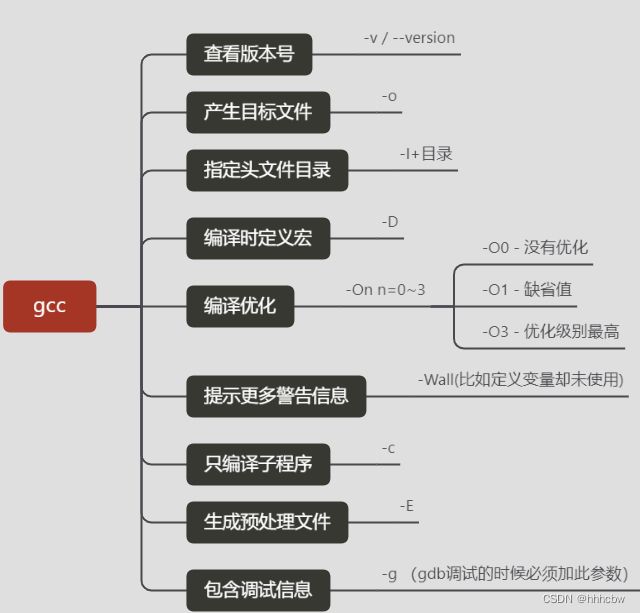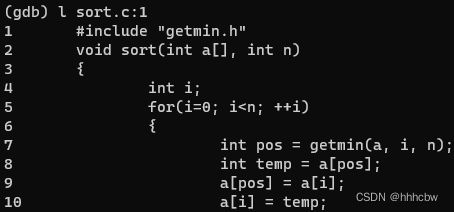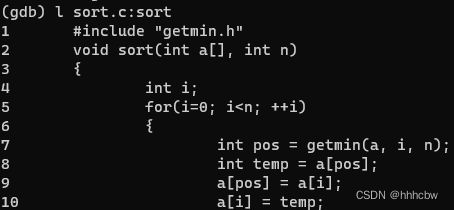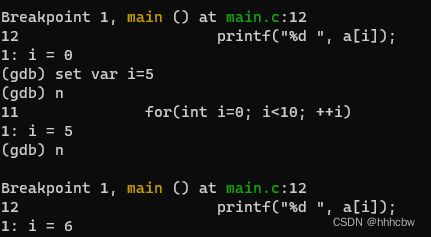Linux学习笔记——C程序的编译运行与调试
这篇文章比较详细地介绍了gcc工具的基本使用,下面主要对一些内容进行补充。
文章目录
- gcc基本使用
- 静态库
- 动态库(共享库)
- gdb调试
gcc基本使用
gcc 在这里代指 gcc编译工具链,一个 .c 文件需要经过如下四个步骤生成最终的可执行文件
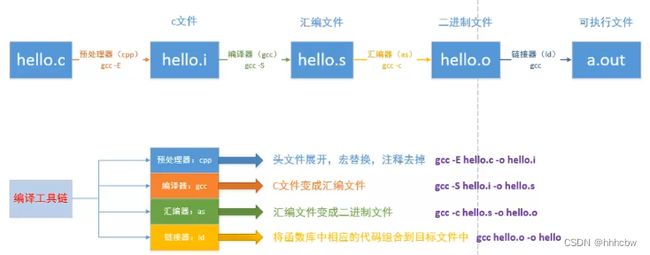
我们可以一步步执行命令生成可执行文件,也可以直接使用 gcc hello.c -o a.out 生成可执行文件。
-I指定头文件目录
hello.c
#includehello.h
#ifndef NUM
#define NUM 20
#endif
一般都将头文件放入 include 文件夹,那么编译生成可执行文件需要指定头文件目录:
gcc hello.c -Iinclude -o a.out
-D编译时定义宏
我们可以在编译时指定宏来实现代码的注释与否以进行DEBUG等行为。
hello.c
#include-On n=0~3进行编译优化
test.c

gcc -S test.c -o test.s
test.s
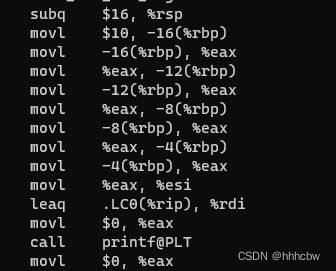
gcc -S test.c -O3 -o test.s

可见编译优化后将上面复杂代码优化为 int d = 10。
静态库
正常开发一个软件需要将头文件放进 include 文件夹,源文件放入 src 文件夹,并可以将源程序编译生成的多个可执行文件放入函数库中,这样在给用户程序时就可以不需要提交源代码。
而函数库分为静态库与动态库(共享库),下面首先介绍静态库。
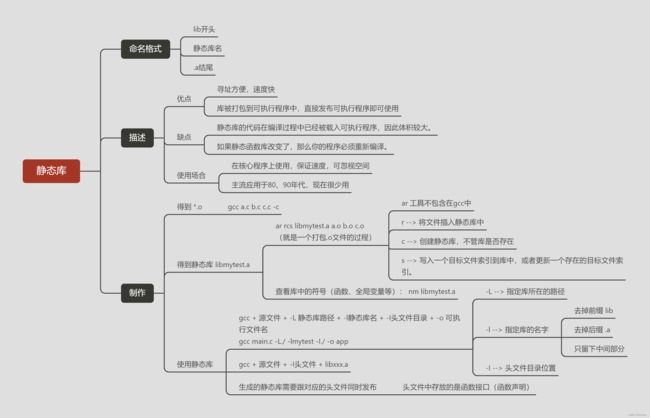
目录结构如下:
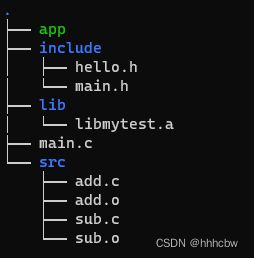
main.c
#include main.h
#ifndef MAIN_H
#define MAIN_H
int add(int x, int y);
int sub(int x, int y);
#endif
acc.c
#include "main.h"
int add(int x, int y)
{
return x + y;
}
sub.c
#include "main.h"
int sub(int x, int y)
{
return x - y;
}
gcc *.c -c -I./include 生成对应.o文件
ar rcs libmytest.a *.o 生成静态库libmytest.a
gcc main.c -L./lib -lmytest -Iinclude -o app 生成可执行文件app。
动态库(共享库)
除了静态库,还有动态库,其各有各自的优点和缺点。
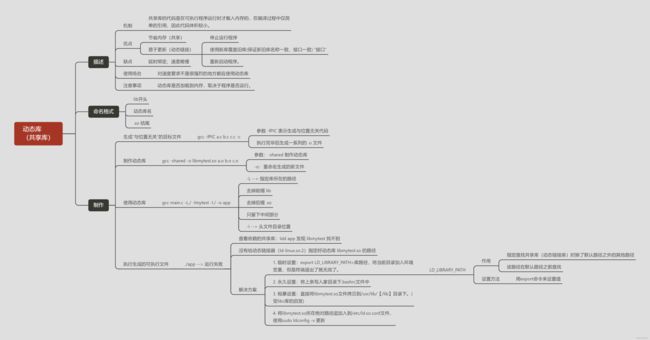
目录结构如下:

gcc -fPIC *.c -c -Iinclude生成与位置无关的目标文件,这是因为动态库的目标文件是运行时动态加载进目标程序中,所以需要目标文件与位置无关,即相对位置。gcc -shared -o libmytest.so *.o制作动态库gcc main.c -L./lib -lmytest -I./include -o app使用动态库.app执行生成的可执行文件
这是就有问题出现了,app运行失败,我们也可以ldd app发现libmytest找不到

这是因为没有给动态链接器(ld-linux.so.2)指定好动态库libmytest.so的路径。
这里有四个解决方案,第一个方案是临时方案,二至四个方法都是永久设置,其中永久设置最好使用第四种方法。
- 临时设置:
export LD_LIBRARY_PATH=库路径,将当前目录加入环境变量,但是终端退出了就无效了。 - 永久设置:将上条写入家目录下
.bashrc文件中 - 粗暴设置:直接将libmytest.so文件拷贝到
/usr/lib/【/lib】目录下。(受libc库的启发) - 将
libmytest.so所在目录的绝对路径追加入到/etc/ld.so.conf文件,
使用sudo ldconfig -v更新
gdb调试
getmin.h
#ifndef GETMIN_H
#define GETMIN_H
int getmin(int a[], int l, int r);
#endif
getmin.c
#include "getmin.h"
int getmin(int a[], int l, int r)
{
int i;
int mi = a[l];
int pos = l;
for(i=l+1; i<r; ++i)
{
if(a[i] < mi)
{
mi = a[i];
pos = i;
}
}
return pos;
}
sort.h
#ifndef SORT_H
#define SORT_H
void sort(int a[], int n);
#endif
sort.c
#include "getmin.h"
void sort(int a[], int n)
{
int i;
for(i=0; i<n; ++i)
{
int pos = getmin(a, i, n);
int temp = a[pos];
a[pos] = a[i];
a[i] = temp;
}
return ;
}
main.c
#include 我们可以使用 gcc *.c -g -o app 生成可调试的程序。
